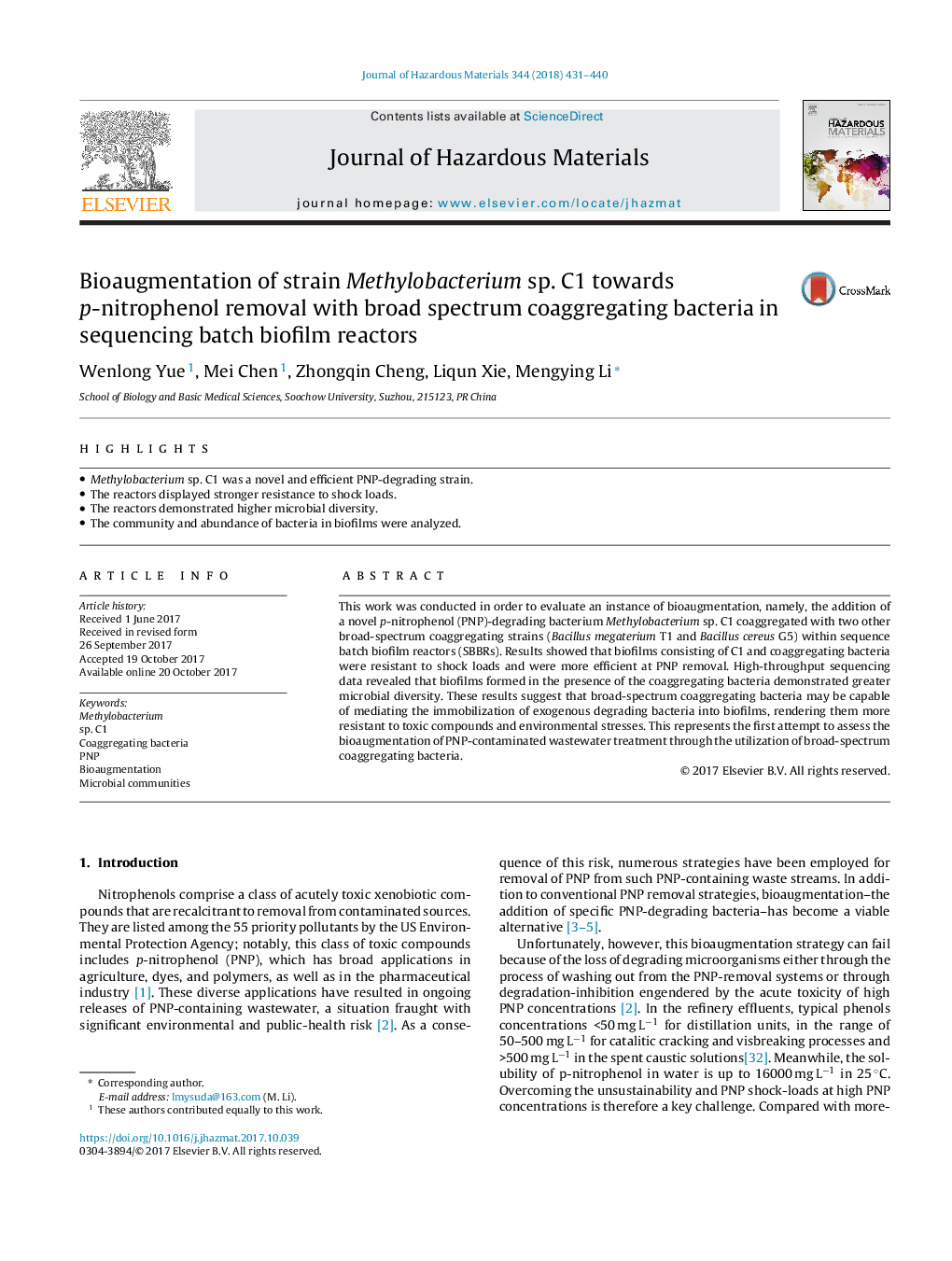| Article ID | Journal | Published Year | Pages | File Type |
|---|---|---|---|---|
| 6969364 | Journal of Hazardous Materials | 2018 | 10 Pages |
Abstract
This work was conducted in order to evaluate an instance of bioaugmentation, namely, the addition of a novel p-nitrophenol (PNP)-degrading bacterium Methylobacterium sp. C1 coaggregated with two other broad-spectrum coaggregating strains (Bacillus megaterium T1 and Bacillus cereus G5) within sequence batch biofilm reactors (SBBRs). Results showed that biofilms consisting of C1 and coaggregating bacteria were resistant to shock loads and were more efficient at PNP removal. High-throughput sequencing data revealed that biofilms formed in the presence of the coaggregating bacteria demonstrated greater microbial diversity. These results suggest that broad-spectrum coaggregating bacteria may be capable of mediating the immobilization of exogenous degrading bacteria into biofilms, rendering them more resistant to toxic compounds and environmental stresses. This represents the first attempt to assess the bioaugmentation of PNP-contaminated wastewater treatment through the utilization of broad-spectrum coaggregating bacteria.
Related Topics
Physical Sciences and Engineering
Chemical Engineering
Chemical Health and Safety
Authors
Wenlong Yue, Mei Chen, Zhongqin Cheng, Liqun Xie, Mengying Li,
